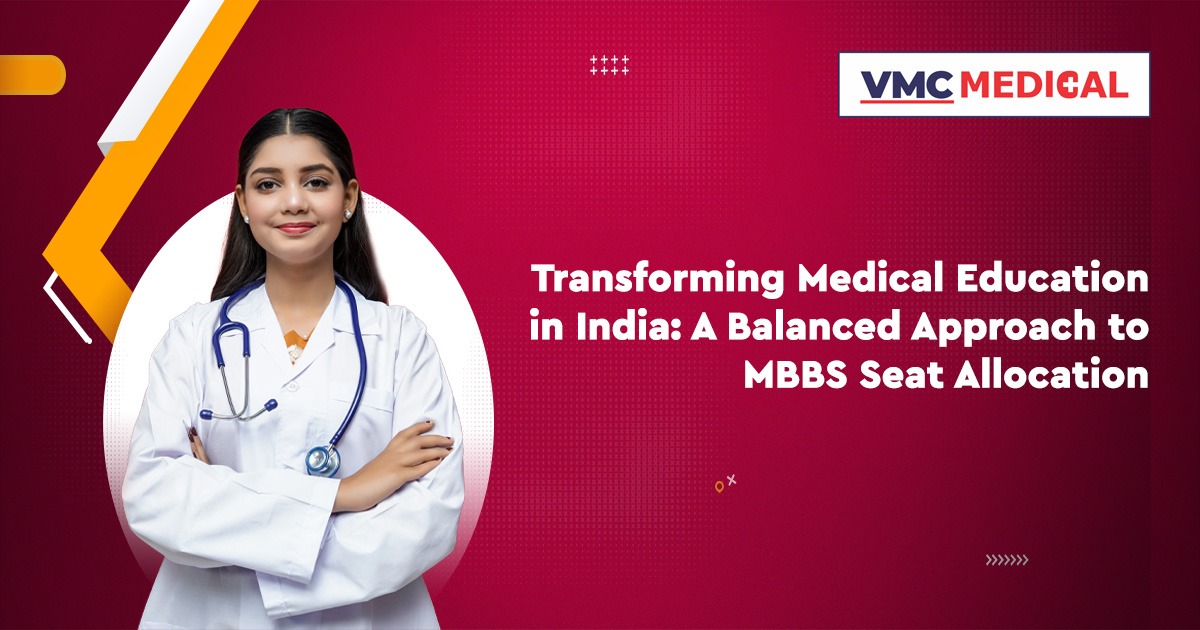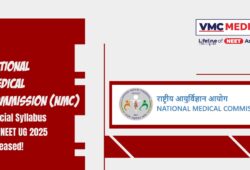Transforming Medical Education in India: A Balanced Approach to MBBS Seat Allocation
 Posted On
Posted On
386 total views, 1 views today
In a groundbreaking initiative aimed at reshaping the landscape of medical education in India, the National Medical Commission (NMC) has recently unveiled a new policy to streamline the number of MBBS seats in each state. This move comes as a response to concerns over overcrowding in medical colleges and seeks to address regional disparities in healthcare professional availability while maintaining the quality of education. This article explores the implications and potential impact of this innovative approach to MBBS seat allocation, shedding light on the reasoning behind it and the responses it has garnered.

The NMC’s Seat Allocation Initiative: A Closer Look
The NMC’s decision to limit the number of undergraduate seats in each state to 100 million per population is nothing short of revolutionary. This policy is designed to create a more balanced distribution of MBBS seats across the country, with the potential to add approximately 40,000 new seats to India’s medical colleges. If evenly distributed, these additional seats could significantly alleviate the existing shortage of healthcare professionals.
The NMC’s vision for this initiative is rooted in the belief that by distributing MBBS seats more equitably, they can reduce regional disparities in the availability of healthcare professionals. This move also serves as a critical step towards ensuring the delivery of high-quality medical education across the nation.
The Under-Graduate Medical Education Board (UGMEB) at the NMC has stated that their commitment lies in improving access to affordable, quality medical education. Their goal is to make high-quality medical professionals available in all corners of the country, fostering a healthcare system that is equitable, universal, and community-oriented.
The Judicial Influence on NMC’s Decision
The NMC’s decision was not made in isolation but rather as a response to various observations and concerns voiced by the judiciary. The Madurai bench of the Madras High Court, for instance, recently cautioned the NMC about the overcrowding of medical colleges. These observations played a significant role in shaping the NMC’s new policy.
In light of these concerns, the NMC included the provision of limiting undergraduate seats in each state in the recently notified MSR guidelines of 2023. This strategic move aims to strike a balance between the demand for medical education and the need to ensure high standards of quality and accessibility.
Mixed Reactions to the NMC’s New Rules
As with any substantial policy change, the NMC’s decision has sparked a range of responses from different states. While all the Southern states, including Tamil Nadu, Karnataka, and Andhra Pradesh, have voiced opposition to these new NMC rules for setting up new medical colleges, Kerala has taken a different path. Kerala has decided to seek relaxation based on specific requirements, signaling a nuanced approach to the policy.
A Fresh Perspective on NMC’s Vision
The NMC’s new policy on MBBS seat allocation marks a crucial step toward creating a more balanced and equitable healthcare system in India. By limiting the number of undergraduate seats in each state and ensuring that quality education remains paramount, the NMC is addressing the pressing need for healthcare professionals while also maintaining high standards of medical education.
This approach not only aims to reduce regional disparities but also encourages a more community-oriented healthcare perspective. It aligns with the broader goal of making medical services accessible to all citizens, regardless of their location. It’s important to view this policy not as a restriction but as a strategic move to improve the overall healthcare infrastructure in India.
Implications of the New Policy
The potential addition of 40,000 MBBS seats across the country is a significant leap forward. This can address the acute shortage of healthcare professionals that many regions face, especially in rural and remote areas. With a more balanced distribution of MBBS seats, healthcare services can become more accessible to all, regardless of where people reside.
Moreover, the emphasis on maintaining high educational standards ensures that the quality of medical professionals produced in India remains world-class. This policy not only increases the quantity of healthcare professionals but also enhances their quality, which is paramount for effective healthcare delivery.
Judicial Influence on Healthcare Policy
The role of the judiciary in shaping healthcare policy is a noteworthy aspect of this development. The Madurai bench of the Madras High Court’s cautionary stance regarding the crowding of medical colleges demonstrates the influence that the judiciary can wield in important matters concerning the health and well-being of citizens.
This case serves as a reminder that the judicial system may function as a checks-and-balances mechanism, ensuring that judgments made in the medical and educational fields are both effective and in the public’s best interests.
Diverse State Responses
The varying responses of different states to the NMC’s new rules illustrate the complexity of the situation. While some states, particularly in the South, have expressed opposition, others, such as Kerala, have sought relaxation based on specific requirements.
This diversity in state responses highlights the need for a flexible approach to healthcare and medical education policy. Each state has unique healthcare needs and existing infrastructures, which should be considered when implementing nationwide policies.
Final Thoughts:
The NMC’s decision to limit MBBS seats in each state is a significant step forward in reforming India’s medical education and healthcare system. By striving to balance quantity and quality, and addressing regional disparities, this policy has the potential to transform healthcare access and delivery in the country.
As this policy continues to be implemented and refined, it is essential to remain attentive to the evolving needs of various states and the ever-changing healthcare landscape. By doing so, India can pave the way for a more equitable, efficient, and universally accessible healthcare system. The NMC’s vision is a step in the right direction towards achieving these goals, and it sets the stage for a new era in medical education and healthcare delivery in India.




